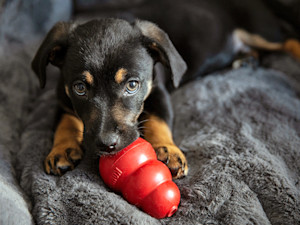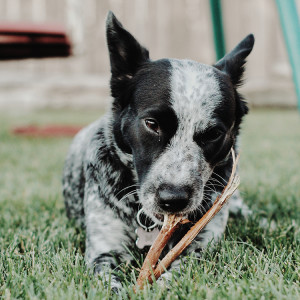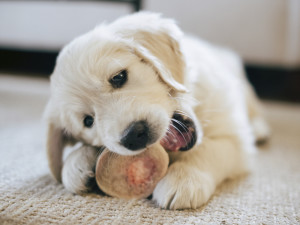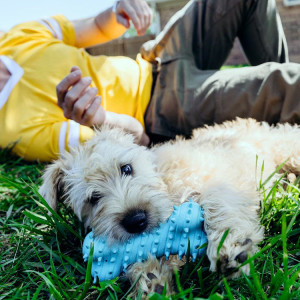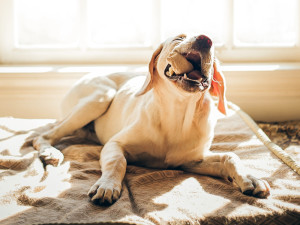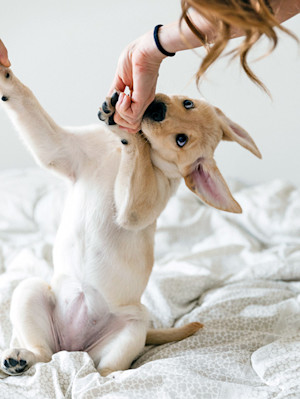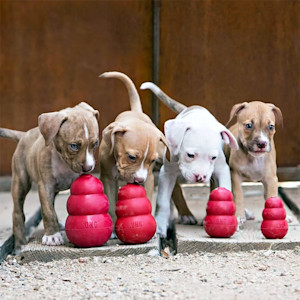Can Puppies Have Bones?
And how to keep them safe while they chew.
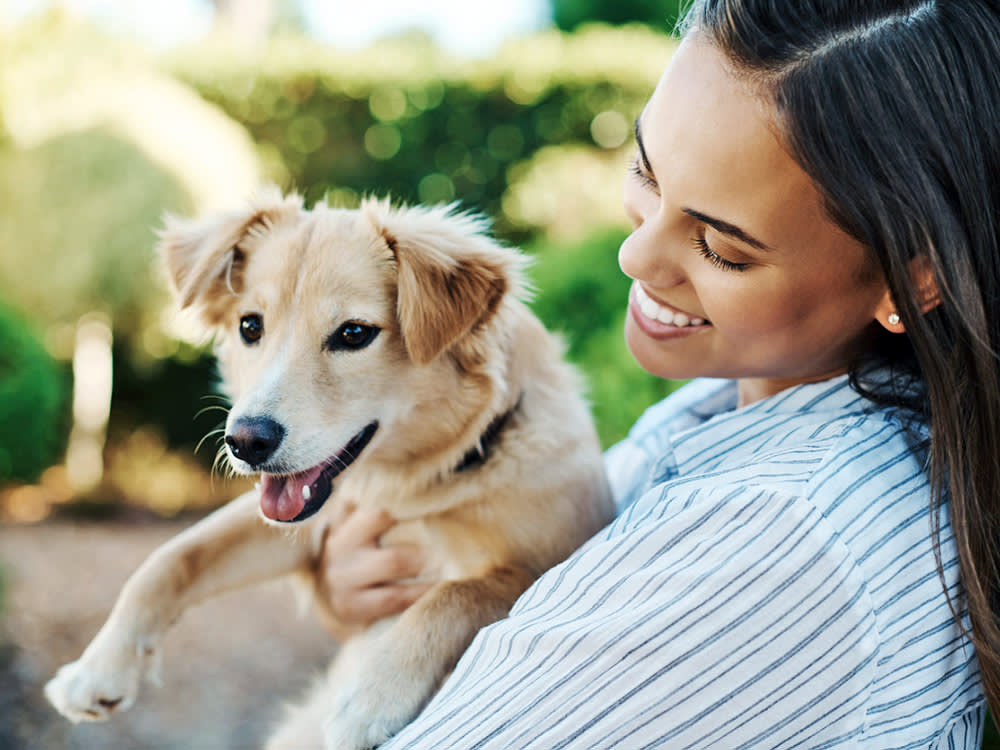
Share Article
In This Article:
At What Age Can You Give Your Puppy A Bone? Do Bones Have Nutritional Benefits for Dogs? Are There Behavioral Benefits? Potential Health Hazards Can Puppies Digest Bones? What About Cooked vs. Raw Bones? How to Safely Feed a Puppy Bones Can You Add Bones to a Puppy’s Food? Types of Bones That Are Best for Puppies Types of Bones That Could Be Dangerous for Puppies What to Do If Your Puppy is Choking on a Bone Safe Alternatives to Bones for Puppies
Bones and puppies seem like a classic combo, but if you’re wondering whether bones are actually safe for them, you’re not alone. While bones can be a boredom breaker and help clean your puppy’s teeth as they chew, they can also come with risks, many of which outweigh the pros.
We worked with two veterinarians to learn the dos and don’ts of feeding bones to puppies. We explore the safest options and go over alternatives that can give your pup the same benefits without the risks. Whether you’re raising a velociraptor — or, uh, a teething puppy — or an occasional nibbler, there’s a lot to consider before adding bones to their diet.
At what age can you give your puppy a bone?
According to Dr. Chris Konvalinka, senior partner at Bahama Road Veterinary Hospitalopens in new tab, it’s best to wait until puppies have a full set of adult teeth before giving them any real bones. “We see the baby teeth break fairly often when puppies are chewing on things even less sturdy than bones.”

Do bones have nutritional benefits for dogs?
Bones don’t necessarily have an added nutritional benefit to puppies, Dr. Konvalinka tells us, especially when they’re eating a high-quality, complete puppy formula kibble. Puppies have very specific nutritional needsopens in new tab, and adding bones — especially fatty marrow bones — into the equation could actually do more harm than good.
Are there behavioral benefits?
Dogs are natural chewers, and this especially goes for puppies who are teething. Gnawing on something (other than your hands) can help relieve some of the pain while they lose those baby teeth.
Chewing also gives your puppy something to do when they get bored. The act of chewing keeps their mind busy and is a great way to calm anxious pups. Bones and toys — ones made specifically for puppies — are a better option than letting your puppy find other things to chew on, like your expensive running shoes.
Potential health hazards
In many ways, bones pose more risks than benefits for puppies. Veterinarian Dr. Joanna Herberger suggests some examples of potential hazards of your puppy getting ahold of a bone:
Choking: If a puppy swallows a small bone by accident, it can get lodged in their throat. This is a medical emergency that requires immediate vet care.
Broken teeth: Puppy teeth are much more prone to breaking than adult teeth, especially when chewing on something hard, like a bone.
Other mouth injuries: Bones that splinter or have sharp edges can also easily cut a puppy’s gums, tongue, or roof of the mouth.
GI upset: Many bones can be fatty and high in protein, which can be hard on a puppy’s stomach and cause issues like vomiting, diarrhea, or constipation.
Digestive blockages: If a puppy eats a full bone or too many bone pieces, it’s possible for them to get stuck in their intestinal tract, causing a blockage. This requires emergency surgery to remove.
Can puppies digest bones?
Dogs’ digestive systems are well equipped to dissolve bones, Dr. Konvalinka says, but there are still risks of undigested pieces accumulating and forming a blockage. But that’s with a fully grown, adult dog.
Puppies have much smaller and more sensitive stomachsopens in new tab, making it more likely for them to suffer from GI upset or experience a blockage. While some puppies may be able to handle small bones, their GI tracts aren’t fully or properly developed enough to digest most bones.
What about cooked bones vs raw bones?
“Cooked bones are more brittle than raw bones and they are more likely to splinter and cause injuries,” Dr. Herberger explains. In comparison, raw bones are safer for puppies to gnaw on but she warns that they still pose risks. Because of how hard raw bones can be, they can easily break puppy teeth if they chew too hard.
How to safely feed a puppy bones
If you want to let your puppy indulge with a bone, there are a few things to keep in mind to do so safely. Dr. Herberger says it’s crucial to choose appropriate-sized raw bones to prevent your puppy from choking or swallowing any pieces. Knuckle bones are a better option because there aren’t any holes for their jaws to get stuck, and they don’t break into pieces as easily. She also advises to limit their chewing time — short sessions as a treat versus regularly — and supervise them at all times.
Can you add bones to a puppy’s food?
It’s not recommended to add bones to your puppy’s meals or give them as regular snacks. Puppies have sensitive systems and very specific nutritional needs. Giving them bones frequently can upset their stomachs and, if already on a balanced puppy food, potentially lead to deficiencies or excess nutrients.
Types of bones that are best for puppies
Puppy-specific toys are the safest options for your puppy to chew on, especially during teething months. Most puppy-teething chews and toys are made from a softer, more pliable material since puppy teeth aren’t nearly as durable as adult teeth.
You can also consider stuff-able toys, like a puppy Kong, and fill it with plain yogurt or canned puppy food. Freeze it overnight to make it last longer — plus it’ll give your pup’s ouchie gums something cold to chew on.
If you want to give your pup any other kind of bone, bring it up with your veterinarian first.
Types of bones that could be dangerous for puppies
While bones aren’t the best choice for puppies, there are some that are more dangerous than others. “In general, the smaller poultry bones could be more harmful if they splinter into smaller, sharp pieces,” Dr. Chris Konvalinka says. Those small pieces can damage your puppy’s mouth or be easily swallowed and cause problems internally.
Cooked bones should also be avoided. During the cooking process, bones lose their nutrients and become thin and brittle — meaning they can easily shatter if your puppy gets a good chomp.
While not a traditional bone, puppy parents should also be wary of feeding rawhide bones. Rawhide comes with a plethora of risks (ie., containing toxins, not easily digestible, choking hazard, etc.) that outweigh the benefit of cleaning your dog’s teeth as they chew.
What to do if your puppy is choking on a bone
Puppies can choke on bones if they are small enough. If you can see the bone in your puppy’s throat, you can try to remove it using your fingers, Dr. Herberger advises. If the bone is invisible, you can perform the Heimlich maneuver for dogs. Always call your vet no matter what, and if you can’t help your dog, get immediate care.
Safe alternatives to bones for puppies
Instead of giving your puppy a bone, there are plenty of safe alternatives on the market. Rubber chew toys, nylon bones, natural chews (like pig ears or bully sticks), and other puppy-specific chew toys are better options for puppies, whether teething or not. These aren’t hard enough to damage your pup’s mouth and aren’t meant to be swallowed.
When in doubt, reach out to your vet or a professional trainer for ideas on bone alternatives for your puppy.
References:
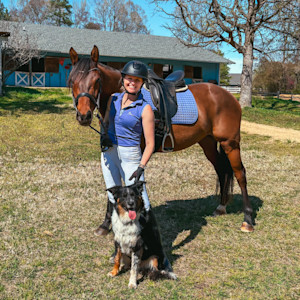
Emily Johnson
Emily Johnson is a long-time pet writer and animal lover, working with brands like PetMD, Chewy, Whisker, Great Pet Care, Rover, GoodRX, and more on topics including pet health, training, overall ownership tips, and pet insurance. You can typically find Emily with a cat in her lap and a Diet Coke in hand, exploring the outdoors with her pup, or tending to her jungle of indoor plants. At home, she has a dog (Goose), two cats (Zoey and Nugget), and a horse (Dewey).
Related articles
![Golden Retriever dog chewing on rawhide toy seated on a blanket by a window]()
Rawhide Is a Raw Deal
The six dangers of rawhide dog bones.
Can Puppies Chew on Sticks?
Why they shouldn’t make a DIY chew toy out of the stuff in your yard.
![a puppy chewing a chew-safe bone]()
The Best Chew Bones for Puppies in 2025
Give them an alternative to your shoes.
![Small black puppy chewing on a Kong toy.]()
What to Do (and Not Do) When Your Puppy Is Teething
When those little razors start biting, keep these tips in mind.
![Woman playing with a puppy at home.]()
At What Age Can Puppies Have Bully Sticks?
They do like to use those chompers, but is this a safe alternative to your fingers?
![four puppies teeth on red Kongs]()
Best Teething Puppy Toys of 2025: Chews, Treats and More
Because your favorite chair is not a chew toy.

